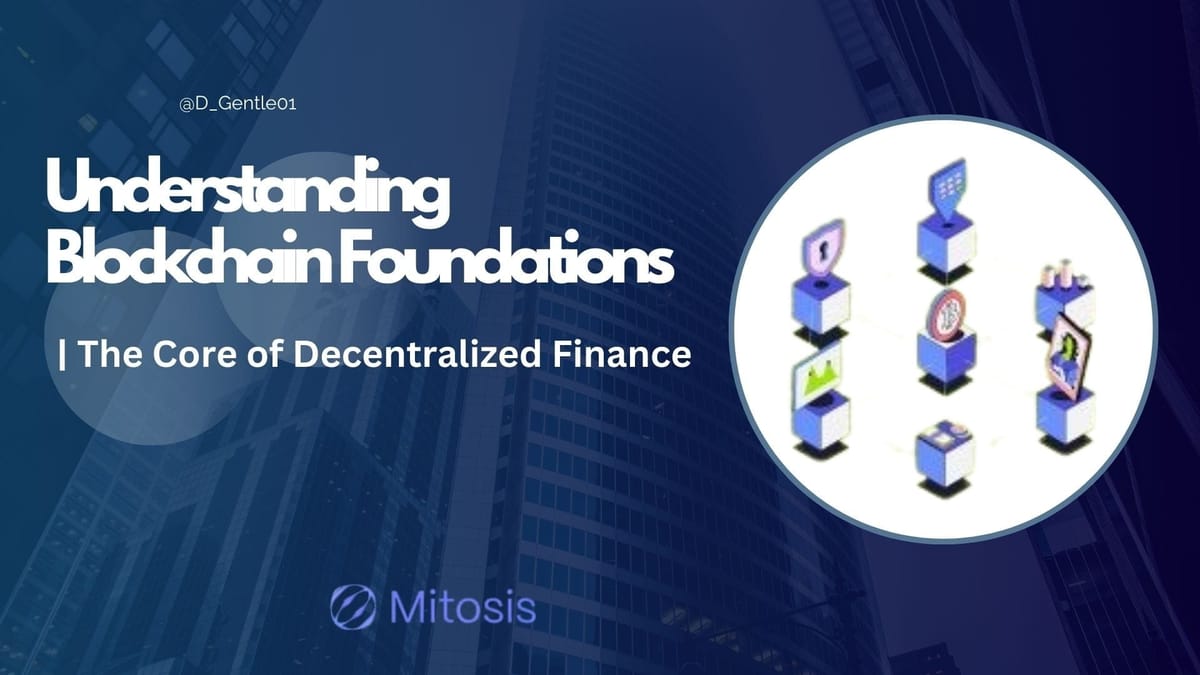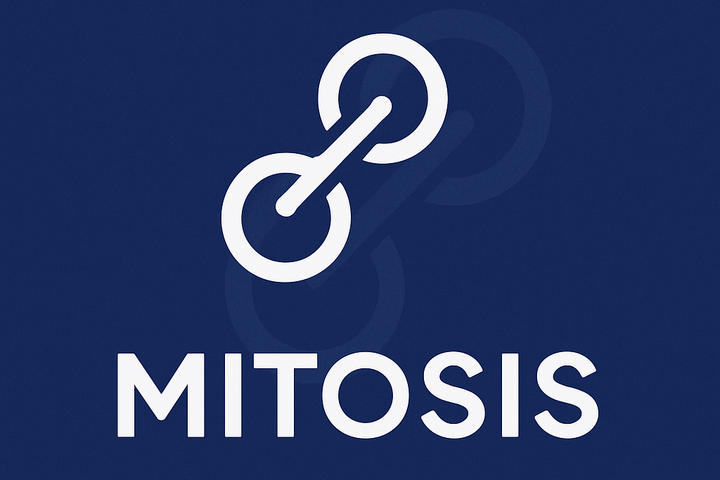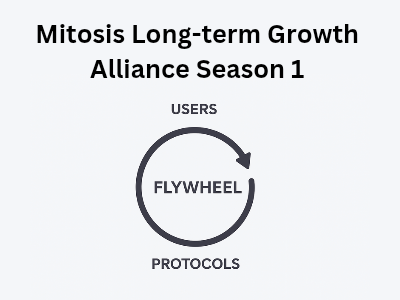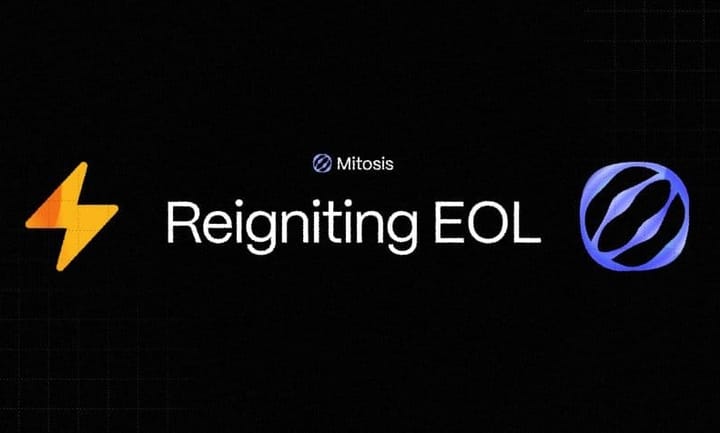Understanding Blockchain Foundations: The Core of Decentralized Finance

Introduction
Now there’s the possibility for safe, clear, and decentralized transactions without outsourcing the work to banks, all thanks to blockchain technology.
What’s initiated this transformation is the use of Decentralized Finance (DeFi) which uses blockchain technology in order to offer financial services that are efficient, permissionless and a whole lot more.
Understanding how Mitosis functions within DeFi requires having a firm grasp on the core principles of blockchain technology and its influence on liquidity management, smart contracts, and decentralized ecosystems principles.
What is Blockchain?
A blockchain is a distributed, digital ledger that records transactions across multiple computers (nodes) in a way that ensures security, immutability, and decentralization.
• Immutable: Once recorded, transactions cannot be altered or deleted.
• Transparent: Publicly viewable transactions ensure trust.
• Decentralized: No single point of control or failure.
This structure is ideal for DeFi, where trustless and verifiable transactions are essential.
Blockchain Technology in Decentralized Finance (DeFi)
In traditional finance, customers incur fees when working with banks, clearinghouses, and payment processors. They act as middlemen in any transaction. With the introduction of blockchain, financial interactions can happen directly between individuals without the need of middlemen, resulting in lower costs and higher efficiency.
Decentralized Finance (DeFi) applications utilize blockchain technology to offer a variety of financial functions such as:
• Blockchain enables a wide range of DeFi applications:
• DEXs like Uniswap allow token swaps without central exchanges.
• Lending protocols enable earning and borrowing directly from smart contracts.
• Liquidity pools, like those found in Automated Market Makers (AMMs), drive token availability and market activity. By removing intermediaries, DeFi unlocks financial access and efficiency.
These DeFi platforms automatically execute transactions using smart contracts which removes the need for human involvement. Agreements can be executed in a completely trustless way with the assurance that they will be followed through.
The Power behind Blockchain Transactions
Smart contracts are programs that automatically execute when specific conditions are met.
They are the foundation for:
• Token swaps
• On-chain governance
And in Mitosis’s case, Ecosystem-Owned Liquidity (EOL) is governed by contracts that keep liquidity locked to the protocol.
DeFi and Blockchain Liquidity
DeFi markets that enable the trading, lending, and borrowing of various assets rely heavily on liquidity. It emphasizes how easy or difficult it is to purchase, sell or use a specific asset without undergoing significant price shifts.
DeFi and liquidity importance
Lending and Borrowing: Increased idle capital in the lending pool.
Consensus Mechanisms: How Security is Maintained on Blockchains
Blockchains secure their networks and validate transactions using consensus mechanisms. These mechanisms make sure all parties in the blockchain ecosystem agree on the transaction history without the intervention of a centralized authority.
Proof of Work mechanisms ensure that transactions are indisputable while also reinforcing the integrity of the network, thus making it secure and reliable for financial applications
Mitosis and The Liquidity of Blockchains in the Future
Preserving liquidity which is efficient and sustainable is one of the main problems facing DeFi.
Mitosis is addressing the issue of liquidity in decentralized finance platforms by improving the effectiveness of automated market makers.
Conclusion
Blockchain technology provides the fundamental infrastructure for Decentralized Finance (DeFi), enabling secure, transparent, and trustless financial interactions. Blockchain ensures that DeFi operates effectively without intermediaries, from smart contracts to liquidity management and consensus mechanisms.
Projects like Mitosis are leading the way in optimizing liquidity ownership as DeFi develops, ensuring capital-efficient and sustainable liquidity models. To stay ahead in the DeFi space, understanding blockchain fundamentals is crucial.
With continued innovation, the DeFi ecosystem is set to disrupt traditional finance and reshape global economic systems.
Kindly visit Matrix to learn more and get started.



Comments ()